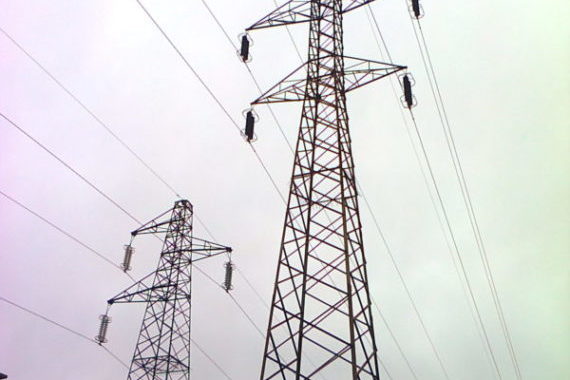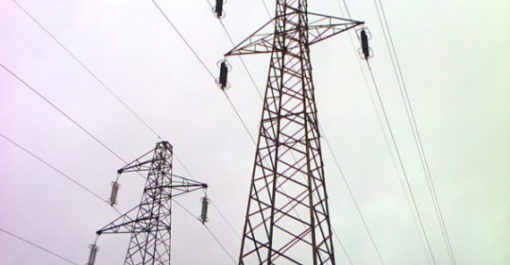Roma, 24 febbraio 2021 – Terna, la società che gestisce la rete di trasmissione elettrica italiana, ha aggiudicato una gara del valore complessivo di 300 milioni di euro relativa a lavori di posa di nuovi cavi interrati in alta tensione. Le 17 imprese assegnatarie, in forma di Raggruppamenti Temporanei di Concorrenti, sono tutte italiane e facenti parte del sistema di qualificazione di Terna, altamente specializzate per la complessità delle lavorazioni. Le attività riguarderanno infrastrutture per linee elettriche in cavo a 150 kV da posare sull’intero territorio nazionale nell’arco dei prossimi 3 anni.
Il procedimento di gara è stato svolto secondo la normativa vigente sugli appalti per i settori speciali ed ha assegnato complessivamente alle 17 imprese aggiudicatarie (6 del Nord, 7 del Centro, 4 del Sud) i 5 lotti in cui è stato suddiviso: i lotti 1 e 3 nell’area Centro Sud per un valore rispettivamente di 97,5 milioni di euro e 52,5 milioni di euro; il lotto 2 nell’area Centro Sud e Nord Ovest per un valore di 67,5 milioni di euro; il lotto 4 nell’area Nord Est e Nord Ovest per un valore di 43,5 milioni di euro; il lotto 5 nell’area Nord Est per un valore di 39 milioni di euro.
La gara si inquadra nell’ambito dell’esecuzione delle attività previste dal Piano Industriale 2021-2025 di Terna e punta ad abilitare, anche in questo periodo di emergenza covid-19, una efficiente e sicura ripartenza produttiva delle piccole e medie imprese del settore, a sostegno della ripresa economica di tutta la filiera industriale coinvolta e quindi del Paese. I contratti assegnati saranno utilizzati per eseguire alcuni dei principali progetti di sviluppo e ammodernamento che l’azienda ha pianificato nei prossimi anni per accrescere l’efficienza, la resilienza e la sostenibilità della rete elettrica italiana attraverso le più moderne e affidabili tecnologie. Terna ha stimato che circa la metà delle nuove infrastrutture entro il 2025 sarà in cavo interrato.
Nello specifico, tra le opere programmate da Terna rientrano: la parte in cavo del collegamento elettrico ‘Colunga-Calenzano’ (tra le province di Bologna e Firenze), opera strategica da 170 milioni di euro di investimento complessivo, con oltre 16 km di cavi interrati, che contribuirà ad aumentare la capacità di scambio fra il Nord e il Centro-Nord e rafforzare l’infrastruttura elettrica di Emilia-Romagna e Toscana rendendola più efficiente e sostenibile; le attività di riassetto e razionalizzazione della rete elettrica nelle principali città metropolitane (tra cui Roma e Ragusa), e in aree particolarmente urbanizzate, che prevedono la sostituzione di vecchie infrastrutture con nuovi cavi tecnologicamente all’avanguardia e a minore impatto ambientale, a vantaggio della qualità e continuità del servizio elettrico; gli interventi per migliorare la sicurezza e l’affidabilità della rete in alta tensione nella Sicilia sudorientale. Oltre a questi sono ricompresi negli appalti assegnati anche decine di interventi diffusi, di minore entità.
Nel complesso, Terna si avvale di circa 2 mila i fornitori, per la stragrande maggioranza italiani (97%), utilizzati ogni anno in centinaia di siti di cantiere: si tratta di imprese per lo più di piccole e medie dimensioni, attive nei settori costruzioni ed elettromeccanica, ma anche Ict e servizi innovativi.
Work for laying new underground electrical cables throughout the country has been assigned. Terna awards € 300 Million tender for the development and modernisation of the electicity grid. The activities will involve 17 specialised firms, all Italian, for the next 3 years – Rome, 24 February 2021. Terna, the company that manages the Italian electricity transmission grid, has awarded the tender for the total amount of € 300 million related to works for laying new high-voltage underground electrical cables.
The 17 firms awarded the contracts, in the form of Temporary Joint Ventures, are all Italian and are part of the Terna qualification system, highly specialised for the complexity of the work. The activities concern infrastructures for 150 kV underground power lines to be laid all over the country in the next 3 years.
The tender procedure was carried out in accordance with current legislation on contracts for the special sectors and assigned overall to the 17 winning firms (6 from the North Italy, 7 from the Centre, 4 from the South) the 5 batches into which it was divided: batches 1 and 3 in the Centre-South area for an amount respectively of € 97.5 million and € 52.5 million; batch 2 in the Centre-South and North-West areas for an amount of € 67.5 million; batch 4 in the North-East and North-West areas for an amount of € 43.5 million; batch 5 in the North-East area for an amount of € 39 million.
The tender procedure is part of the performance of the activities provided for in Terna’s 2021-2025 Industrial Plan and aims to enable, also during this covid-19 crisis, an efficient and secure resumption of the production of small and medium-sized companies in the sector, in support of the economic recovery of the entire industrial supply chain involved and therefore of the country.
The contracts awarded will be used to carry out some of the main development and modernisation projects that the company has planned in the coming years to increase the efficiency, resilience and sustainability of the Italian electricity grid using the most modern and reliable technologies. Terna has estimated that around half of new infrastructures by 2025 will be underground cable.
Specifically, the works planned by Terna include the cable for the ‘Colunga-Calenzano’ electrical connection (between the provinces of Bologna and Florence), a strategic project with a total investment of € 170 million and more than 16 km of underground cables, which will contribute to increase the exchange capacity between the North and the Centre-North of Italy and strengthening the electrical infrastructure of Emilia-Romagna and Tuscany making it more efficient and sustainable;
the reorganisation and rationalisation activities for the electricity grid in the main metropolitan cities (including Rome and Ragusa, in Sicily), and of particularly urbanised areas, which provide for the replacement of old infrastructures with new technologically advanced cables with a lower environmental impact, benefiting the quality and continuity of the electrical service; the projects to improve the security and reliability of the high-voltage grid in south-eastern Sicily.
In addition to these, dozens of widespread, minor projects are also included in the contracts awarded.
Overall, Terna avails itself of approximately 2,000 suppliers, the vast majority of them Italian (97%), used each year in hundreds of construction sites: these are mostly small and medium-sized companies, active in the construction sectors and electromechanics, but also ICT and innovative services.







